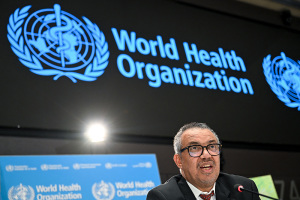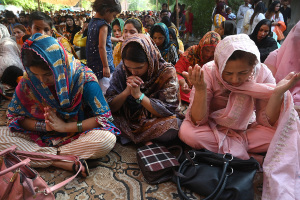The Madness of Redistribution: Why Paul Krugman is Wrong (Again)
At the end of the classic film, "The Bridge Over the River Kwai," the prison camp's doctor surveys the scenes of death and destruction surrounding him. He sums up the imponderable moral irony of the British helping the Japanese build a bridge only to blow it up as a military necessity, and exclaims, "Madness! Madness!"
Reading Nobel Laureate Paul Krugman's piece in yesterday's New York Times on the benefits of coercive charity and legalized theft, AKA income redistribution, I think I now know about how "Kwai's" doctor felt.
The very notion of redistribution implies stasis: That the economic pie is only so large and thus must be re-divided, comprehensively and repetitively, and that the central planners and revenue collectors of the central government are the wisest among us to do so.
Oh, c'mon. Economic growth is the key to increased productivity and prosperity. Economic growth is best achieved through increasing opportunity, incentivizing prudent behavior (e.g., if you want to have a child, get and stay married), sound fiscal policy, technological improvements, and strengthening families.
These things are not conservative clichés but economic facts. They can be quantified in myriad ways.
Krugman's prescription for economic health via redistribution is premised in large part of his claim that "Almost 40 percent of American children live in poverty or near-poverty. Do you really think they have the same access to education and jobs as the children of the affluent?"
The premise of Krugman's argument – that 40 percent of American children live in "poverty" – is so wildly overstated as to erase whatever credibility he once possessed. This number is roughly double what the Census bureau's data suggest. The more realistic number (about 22 percent) based on the Census Bureau's standards is itself grossly misrepresentative. As the Heritage Foundation has documented, "For most Americans, the word 'poverty' suggests near destitution: an inability to provide nutritious food, clothing, and reasonable shelter for one's family. However, only a small number of the 46 million persons classified as 'poor' by the Census Bureau fit that description. While real material hardship certainly does occur, it is limited in scope and severity." I have addressed this theme at length elsewhere.
As my colleagues at FRC's Marriage and Religion Research Institute have demonstrated, the most effective means of overcoming economic disadvantage is not another government program or mandated redistribution of existing or future assets, but the institution of the family:
- Married-couple families generate the most income, on average, and year-over-year show higher productivity growth.
- Intact, married families have the greatest net worth.
- Poverty rates are significantly higher among cohabiting families and single-parent families than among married families.
- Children in married, two-parent families enjoy far more economic well being than children in any other family structure.
If Mr. Krugman wants to see true poverty, I'll be glad to forward photographs to him of some of the places I've seen in India and other regions in the developing world. I would be very pressed to find any analogous photos of poverty in the United States. Perhaps Mr. Krugman has some.
No American child should ever go without good nutrition, a warm and safe home, and the chance to learn and thus develop her God-given abilities more fully. But, thankfully, very few of our youngest citizens fall out of this category.
The way to ensure that these children begin to live on the upside of opportunity is not by seizing monies or property from one group and giving it them. Instead, it's to foster long-term, non-inflationary economic growth, personal dignity through strong family life, and a future of hope in a free society.




























